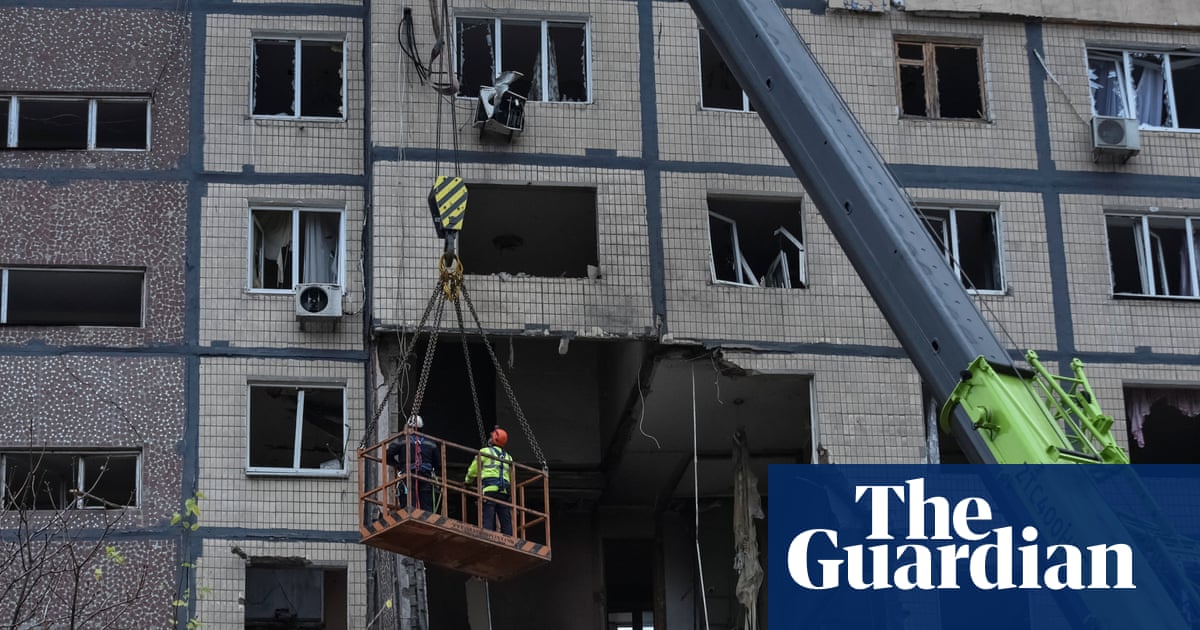Number of asylum seekers housed in UK hotels up 8% on 12 months ago at end of Labour's first year in government
A total of 32,059 asylum seekers were being housed temporarily in UK hotels at the end of Labour’s first year in government, up 8% on the same point 12 months ago, Home Office data released today shows, reports the PA news agency.
The latest data, published on Thursday as part of the usual quarterly immigration statistics, cover Labour’s first year in office. They show the number of asylum seekers in UK hotels by the end of June was up from 29,585 at the same point a year earlier, when the Conservatives were still in power but down slightly on the 32,345 figure at the end of March.
The latest number is still below the peak of 56,042 asylum seekers in hotels at the end of September 2023 under the Tories.
Figures for hotels published by the Home Office on Thursday date back to December 2022.
Government spending on asylum in the UK stood at £4.76bn in 2024/25, down 12% from a record £5.38bn in 2023/24.
The total covers all Home Office costs related to asylum, including direct cash support and accommodation, plus wider staffing and other migration and borders activity. It does not include costs relating to the interception of migrants who travel to the UK across the English Channel in small boats.
Key events Show key events only Please turn on JavaScript to use this feature
Despite a good month for the public finances, the Treasury won’t be putting in any champagne orders, writes the Guardian’s senior economics writer, Phillip Inman.
You can read his analysis, on why radical tax reform may be only way for chancellor Rachel Reeves to balance the books, at the link below:
Retired women effectively go more than four months every year without getting a pension because of a gender gap, according to research by the Trades Union Congress (TUC).
The PA news agency reports that the TUC estimated women were losing the equivalent of £7,600 a year on average. The union organisation said compared with men, retired women effectively stop receiving pension income from today.
The income gap between men and women in retirement is now 36.5%, according to research from the Prospect union.
The government has revived the pension commission, which will bring together unions, employer and independent experts to look into the causes of the gap.
TUC general secretary Paul Nowak said:
Everyone deserves dignity and security in retirement, but too many retired women have been left without enough to get by.
We must make sure that these inequalities are addressed for future generations. That’s why reviving the pensions commission – bringing together unions, employers and independent experts – is a vital step forward.
We now have a chance to make sure everyone, including women, receive the decent retirement income that all workers need.
A government spokesperson said:
We’re determined to close the gender pensions gap, and the new state pension has already reduced historic inequalities faced by women and low earners. Alongside this, the pensions commission will tackle barriers to close the gender pensions gap in private pensions to ensure women have the dignity and security they deserve in retirement.
Minister Catherine McKinnell has said it is “really important” to manage asylum accommodation while also speeding up the claims process.
The education minister told Sky News this morning, before Thursday’s Home Office data release:
We inherited a terrible mess from the last government when it comes to the immigration system and particularly the processing of asylum claims – massive backlog.
She added:
[I] absolutely recognise the concerns that local communities have and we want to work with local communities to find solutions.
Pressed on the speed of government efforts to close asylum hotels, McKinnell said:
What we’ve done is doubled the number of asylum claims that have been processed. So, that is reducing the number of people who are requiring this accommodation, but also returning people that shouldn’t be here.
We’re also committed to ending the use of asylum hotels by the end of this parliament.
So, it will take some time to clean up the situation that we’ve inherited, but, you know, it’s really important that we continue to both manage the accommodation that people are currently in and also speed up the process.
The backlogs are totally unacceptable, not only for the amount of time that people are wasting, but that people are just not being returned that shouldn’t be here as well.
People have 'every right' to protest asylum hotels, says shadow home secretary
People have “every right to engage in protest”, the shadow home secretary has said, amid concerns a high court ruling could trigger a wave of demonstrations outside asylum hotels.
Chris Philp named three Conservative-led councils which are considering taking legal action against hoteliers whose property is being used to house asylum seekers. His party’s leader Kemi Badenoch has written to Conservative council leaders “encouraging” them to follow Epping Forest district council’s footsteps by launching bids to shut these hotels, if their “legal advice supports it”.
Philp told BBC Breakfast on Thursday that Borough of Broxbourne council in Hertfordshire, Reigate and Banstead borough council in Surrey, and Hillingdon council in London were each considering taking similar legal action. “So, I think there are many up and down the country who are looking at this following the Epping ruling,” he said.
Philp added:
I think these councils are, you know, sick and tired of having these asylum hotels housing predominantly young men who entered the country illegally in their communities. They want to see them closing down and that is why I think they’re rightly looking at legal action.

According to the PA news agency, when asked whether there was a “risk” the high court’s decision “will encourage more protests and problems in communities outside these hotels”, Philp told BBC Breakfast:
People are understandably angry about the government, the Labour government’s failings, the border crisis they’re presiding over.
They do have the right to peacefully protest – I do stress the word ‘peacefully’. Peaceful protest is lawful, it is every citizen’s right to do that. Of course, if it isn’t peaceful, that is wrong and that should be dealt with by the police, but where protest is peaceful, people have every right to engage in protest.
He had earlier claimed that “reporting says hundreds of charges have been laid against illegal immigrants being accommodated in these hotels”.
Number of asylum seekers housed in UK hotels up 8% on 12 months ago at end of Labour's first year in government
A total of 32,059 asylum seekers were being housed temporarily in UK hotels at the end of Labour’s first year in government, up 8% on the same point 12 months ago, Home Office data released today shows, reports the PA news agency.
The latest data, published on Thursday as part of the usual quarterly immigration statistics, cover Labour’s first year in office. They show the number of asylum seekers in UK hotels by the end of June was up from 29,585 at the same point a year earlier, when the Conservatives were still in power but down slightly on the 32,345 figure at the end of March.
The latest number is still below the peak of 56,042 asylum seekers in hotels at the end of September 2023 under the Tories.
Figures for hotels published by the Home Office on Thursday date back to December 2022.
Government spending on asylum in the UK stood at £4.76bn in 2024/25, down 12% from a record £5.38bn in 2023/24.
The total covers all Home Office costs related to asylum, including direct cash support and accommodation, plus wider staffing and other migration and borders activity. It does not include costs relating to the interception of migrants who travel to the UK across the English Channel in small boats.
UK borrowed less than expected in July in lift for Rachel Reeves

Richard Partington
The UK government borrowed less than expected in July, official figures show, in a boost to the chancellor, Rachel Reeves, as she faces pressure ahead of her autumn budget.
Figures from the Office for National Statistics (ONS) showed public sector net borrowing – the difference between public spending and income – fell to £1.1bn, down by £2.3bn from the same month a year earlier.
The reading was below City predictions for a deficit of £2.6bn and forecasts from the Office for Budget Responsibility (OBR) of £2.1bn.
Borrowing over the first four months of the financial year so far was £60bn. While matching the OBR’s forecasts, it was £6.7bn higher than in the same period a year earlier, and the third highest April-to-July borrowing since monthly records began.
Despite the better-than-expected July figure, economists warned the chancellor would still face a tough autumn budget because the OBR was likely to slash its growth forecasts for the UK economy, while Labour’s welfare U-turns would add to borrowing.
Alex Kerr, UK economist at the consultancy Capital Economics, said Reeves would probably need to raise between £17bn and £27bn to maintain headroom of £9.9bn against her self-imposed fiscal rules.
“Ultimately, today’s release does little to brighten the gloomy outlook ahead of the budget later this year,” he said.
Ministers are understood to be exploring options to raise more money from inheritances and property taxation, the Guardian has revealed. Earlier this month the National Institute of Economic and Social Research (NIESR) thinktank warned the shortfall in the public finances could reach more than £40bn.
Martin Beck, chief economist at WPI Strategy, said the latest figures would offer Reeves some relief. “Talk of a huge ‘black hole’ in the public finances is looking overstated, but the outlook is still uncomfortably tight,” he said.
Labour peer urges ministers to appeal against court ruling to close Epping hotel
Eleni Courea
Charles Falconer, a Labour peer who served as justice secretary under Tony Blair and was previously Keir Starmer’s shadow attorney general, urged ministers to appeal against the court decision to close the asylum hotel in Epping.
He told the BBC Radio 4 Today programme the judgment “causes great problems” because it “gives rise to the expectation that some asylum hotels can be closed” but without indicating which ones. He said:
I very strongly urge the government – I don’t know what they’re going to do – to appeal and get some certainty, first of all on which should be closed … and which shouldn’t. Secondly, to deal with the question of a reasonable timescale in relation to this, and thirdly, to deal with this very troublesome issue: namely do demonstrations outside these hostels lead it to it being more likely that they will be closed?

Chris Philp, the shadow home secretary, said that the Conservatives were wrong to have used so many hotels to house asylum seekers while they were in government.
Asked whether the number of hotels in use had been a mistake, Philp told the BBC Radio 4 Today programme:
Yes it was. We wanted to get it down. And we did get it down. In the last nine months we halved the number of asylum hotels and had that trend continued by now there would be no asylum hotels.
Catherine McKinell, an education minister, said the government was committed to ending the use of asylum hotels by the end of this parliament. Asked where asylum seekers would be housed instead, she told Times Radio:
That’s a big question. And one that I think we need to work very closely with local authorities and local communities to tackle.
Education minister Catherine McKinnell has said the government is “tackling” the barriers to better grades after she was asked why white working-class children are “doing so badly”, reports the PA news agency.
McKinnell said the question was a “really profound” one and that underachievement in that demographic “has persisted over many years”.
She told Times Radio:
We’ve seen there have been some improvements in our school system in the last decade, there have been over 30 years improvements in our school system. But this challenge has persisted, which is why we are very focused on tackling child poverty in the early years.
We’re extending free school meals to [an] additional half a million children. We’re investing in free breakfast clubs to make sure that children get that really good start to the day, both from a socialised perspective, but also food. So, we are tackling what we see are the barriers that are holding young people back, and also making sure that they want to be in school as well.
Students receiving their GCSE results in England, Wales and Northern Ireland on Thursday will have “support available”, McKinell added.
McKinnell told Times Radio:
I think whatever the outcome for these young people, they have worked incredibly hard, as have the schools, as have the teachers. So, it really is a day to recognise that and to celebrate, and also to mark how important it is that this is a springboard into whatever comes next.
So, for young people who are awaiting their results, whatever the outcome, there’ll be support available, whether it’s to go on to an apprenticeship, to A-levels, to T-levels, to vocational qualifications.
It’s a very exciting day for an awful lot of young people, their families and their schools.
You can keep up to date with the latest via the Guardian’s GCSE results live blog:
Shadow justice secretary Robert Jenrick has echoed Kemi Badenoch’s views, saying the country is “in a mess”. He told the Daily Express:
Every patriotic council, whether Conservative, Reform, whatever, should follow Epping’s lead and seek an injunction.
Tuesday’s high court decision has also caused a potential headache for the Home Office, which has a legal duty to house destitute asylum seekers while their claims are being dealt with. If planning laws prevent the government from using hotels, ministers will face a scramble to find alternative accommodation, potentially in the private rented sector.
Badenoch urges Tory councils to challenge asylum hotels in court
Kemi Badenoch has called for more Conservative councils to launch legal challenges over hotels housing asylum seekers as the government faces a potential revolt from its own local authorities.
In a letter to Tory councils, Badenoch said she was “encouraging” them to “take the same steps” as Epping council “if your legal advice supports it”, reports the PA news agency.
Epping secured a temporary injunction from the high court on Tuesday, blocking the use of the Essex town’s Bell hotel as accommodation for asylum seekers on planning grounds.
Labour dismissed Badenoch’s letter as “desperate and hypocritical nonsense”, but several of its own local authorities have already suggested they too, could mount legal action against hotels in their areas.

The decision has prompted councils controlled by Labour, the Conservatives and Reform UK to investigate whether they could pursue a similar course of action. These include Labour-run Tamworth and Wirral councils, Tory-run Broxbourne and East Lindsey councils and Reform’s Staffordshire and West Northamptonshire councils.
Patrick Harley, the leader of Conservative-run Dudley council, told the Daily Mail it was looking at taking legal action, a verdict echoed by Richard Biggs, the Tory leader of Reigate and Banstead council. But Labour’s Newcastle city council and Brighton and Hove city council have both ruled out legal action.
In her letter, Badenoch praised Epping council’s legal challenge and told Tory councils she would “back you to take similar action to protect your community”. But she added that the situation would “depend on individual circumstances of the case” and suggested Tory councils could pursue “other planning enforcement options”.
Badenoch also accused Labour of “trying to ram through such asylum hotels without consultation and proper process”, saying the government had reopened the Bell hotel as asylum accommodation after the Conservatives had closed it. The hotel had previously been used as asylum accommodation briefly in 2020 and then between 2022 and 2024 under the previous Conservative government.
According to the PA news agency, a Labour spokesperson said Badenoch’s letter was a “pathetic stunt” and “desperate and hypocritical nonsense from the architects of the broken asylum system”, saying there were now “20,000 fewer asylum seekers in hotels than at their peak under the Tories”.
The letter comes ahead of the publication on Thursday of figures showing how many asylum seekers were being temporarily housed in hotels at the end of June this year. We’ll have more on this soon.
Meanwhile, students in England, Wales and Northern Ireland will receive their GCSE results today. Education minister Catherine McKinnell is on the morning media rounds for the government, while the shadow home secretary, Chris Philp is doing the same for the Conservatives.
In other developments:
-
The UK government borrowed less than expected in July, official figures show, in a boost to the chancellor, Rachel Reeves, as she faces pressure ahead of her autumn budget. Figures from the Office for National Statistics (ONS) showed public sector net borrowing – the difference between public spending and income – fell to £1.1bn, down by £2.3bn from the same month a year earlier.
-
Stella Creasy and Richard Tice are pushing for Labour to allow a Brexit scrutiny committee to be formed in parliament, after the Guardian revealed environmental protections had been eroded since the UK left the EU. The Labour and Reform UK MPs argue that there is no scrutiny or accountability over how Brexit is being implemented.
-
The deputy prime minister, Angela Rayner, has been hit with a legal challenge after she overruled a local council to approve a hyperscale datacentre on green belt land by the M25 in Buckinghamshire. Campaigners bringing the action are complaining that no environmental impact assessment was made for the 90MW datacentre, which was approved as part of the Labour government’s push to turn the UK into an AI powerhouse by trebling computing capacity to meet rising demand amid what it terms “a global race” as AI usage takes off.
-
England will sell off more than eight times as many council homes in 2025-26 as were constructed the previous year, research has found. Right to buy is depleting council housing stock more quickly than public housing can be replaced, forcing people to spend more money on private market rents and obtain less secure tenancies, a report from the thinktank Common Wealth finds.

 2 months ago
34
2 months ago
34

















































